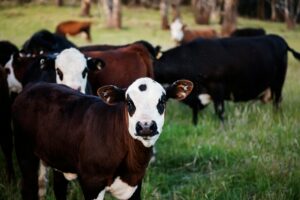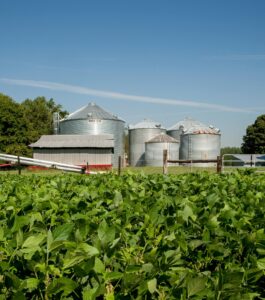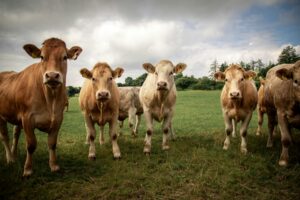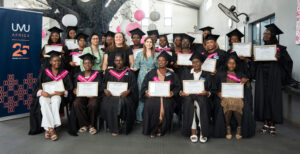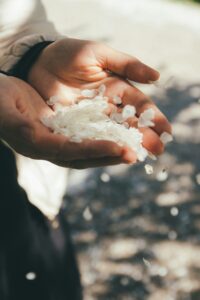Introduction
- South Africa has a diverse and highly suitable natural environment for the production of flowers. Indoor and outdoor production occurs across differing climactic regions of South Africa.
- Most commonly produced products include Roses, Carnations, Chrysanthemum, Proteas, Foliage, Gypsophila, Limonium and a wide range of seed grown flowers e.g. Lisianthus, Delphinium, Helianthus, Limonium, Grasses, Craspedia, Carthamus, Larkspur.
- South Africa’s indigenous flowers such as gladioli, nerine, freesias and gerberas, have undergone many years of extensive research in Europe, and have become major crops worldwide.
- Flower bulbs are also produced in great numbers in a wide variety of species.
- Production is both for the local market as well as various export markets.
- South African proteas and so-called Cape greens (fynbos) are concentrated mainly in the Western Cape. South Africa is the leading exporter of protea cut-flowers,
Sources: Jac Duif and the SA Yearbook which can be found at www.gcis.gov.za.
International business environment
Developed countries in Europe, America, and Asia account for more than 90% of demand.
International trade in floriculture, to a large extent is organised along the regional lines:
- Asia-Pacific countries are the main suppliers to Japan and Hong Kong.
- African, Middle Eastern, and other European countries are the principal suppliers to Europe’s main markets.
- Colombia and Ecuador dominate the market in the USA.
Source: www.intracen.org/itc/market-insider/floriculture/at-a-glance/ [Page now defunct]
- Find international updates on the International Trade Centre web pages https://intracen.org
- International Flower Trade Association (Union Fleurs), https://unionfleurs.org
- Centre for the Promotion of Imports from developing countries, www.cbi.eu. The sectors supported include cut flowers.
- Royal FloraHolland, www.royalfloraholland.com/en
- International Protea Association – https://ipa-protea.org
Local business environment
- The Multiflora flower auction is by far the most important and convenient marketing channel for local marketing. The auction, situated at City Deep, has daily auctions from Mondays to Saturdays from 07h00 where major agents and wholesalers buy flowers. The auction is market driven and prices for products are determined by supply and demand. For newcomers to the industry a visit to Multiflora is absolutely essential to see the heartbeat of sales in the floricultural industry in South Africa. Visit www.multiflora.co.za for more information.
- There is also a strong network of flower wholesalers, distributors and exporters. Bunches For Africa buy flowers from farmers, for example. Visit https://bunchesforafrica.com for more information. Another example is Flora Town who used to do flower auctions, whose focus now is on import/export and wholesale/retail. The Multiflora website gives contact details for flower shops, agents and flower wholesalers in Greater Johannesburg area.
- Read about the fynbos and protea sectors at Cape Flora SA website, www.capeflorasa.co.za. See also the Agribook blogs “Overberg media trip: fynbos packhouse (part 7)” and “Overberg media trip: Flower Valley Farm (part 8)” at www.agribook.co.za.
- The Secret CapeTown website gives details of flower shows. See https://secretcapetown.co.za/cape-town-flower-shows/.
For the newcomer
So you want to be a flower farmer? Potential growers and investors have to reflect on a few vitally important facts beforehand.
The flower industry is complex and requires specialist knowledge and input. It requires:
- Massive capital expenditure (mostly millions).
- Extensive technical knowledge – more than often a grower learns from a family business.
- Intensive, sustained daily management.
- And most importantly, a market. Over-supply of crops on the domestic market occurs regularly, resulting in a downward trend in prices. The export market is new and still expanding, but requires careful market planning.
According to the World Bank Technical Paper, the following preconditions are laid down for the SA Flower Trade:
- Basic market opportunity – One has to have sold the product prior to starting the venture, or you have to know where a market for that product exists before planting. Access to Europe is difficult and expensive. Often there is an over-supply, and farmers are the ones to suffer.
- Availability of sustainable human capital – Human capital in the form of learned and committed people who are prepared to take a risk is required. South African labour, compared to the rest of Africa, is no longer cheap.
- Minimal level of infrastructure – This pertains to availability of airfreight, cooling facilities, roads, telecommunications etc. Also of importance is an internal infrastructure relating to hot¬houses, fertigation, pesticide systems, heating-and-cooling, storing facilities.
- Financing arrangements – High capital investment is a pre-requisite.
Before starting a new farm, you will need a detailed business plan. Issues such as weather, soil types, water quality, fertilising and spraying programs, harvesting, pack¬aging and marketing should be addressed.
Source: South African Flower Export Council
Also refer to the “So you want to grow proteas” and other documents on www.capeflorasa.co.za.
National strategy and government contact
Department of Agriculture
Find information and contact details of the different directorates at www.nda.gov.za.
- Directorate: Plant Production
- Sub-directorate Agricultural Product Quality Assurance
Find Export Regulations and Standards for flowers on the website.
Department of Trade, Industry and Competition (the dtic) www.thedtic.gov.za
Perishable Products Export Control Board (PPECB) www.ppecb.com
Role players
View the Premium Listings below (scroll down or click on “Premium Listings” on the Table of Contents to the right).
Further reference:
Training and research
- Find details of relevant universities on the “Floriculture and nursery crops” page.
Companies involved
- www.multiflora.co.za gives contact details for flower shops, agents and flower wholesalers in Greater Johannesburg area.
- The SAFGA membership list covers categories like flower growers; consultants; suppliers of greenhouses, fertilisers and growing mediums; freight forwarders and export agents etc. Find SAFGA’s details under the “Associations involved” heading.
- For the various inputs consult the other pages on this website e.g. “Hydroponics and undercover growing”, “Fertiliser” etc.
Nurseries
- See the “Floriculture and ornamental plants” page.
Protea specific
- Find the list on www.capeflorasa.co.za.
Websites and publications
Visit the websites listed earlier on this page e.g. www.multiflora.co.za and www.capeflorasa.co.za.
- Available on the Department of Agriculture website, www.nda.gov.za, are the following grower notes: : (i) Caring for your flowers at home (ii) Carnations (iii) Chrysanthemums (iv) Gerbera (v) Production of roses in South Africa (vi) Protea brochure (vii) Proteas production guidelines (viii) Protea. Guides to growing roses and proteas are also included in the offerings.
- Find the International Protea Register on www.nda.gov.za.
- CD Roms from the ARC-PHP (Plant Health and Protection ) include one on flowers. Write to booksales [at] arc.agric.za or infopri [at] arc.agric.za.
- “Local Is Lekker – Celebrating Local Floral Suppliers”. Read the Rambling Rose blog at https://blog.netflorist.co.za
- The AgriSETA Assessment Guide Primary Agriculture “Monitor the establishment of a crop” includes ornamental plants and tunnel crops. See www.agriseta.co.za.
- Find the many grower guides at www.growveg.co.za.
- Find details of Cut Flowers of the World: A Complete Reference for Growers and Florists by Ben-Erik Van Wyk and Johannes Maree at www.allbookstores.com and www.amazon.com.
- Orchids of South Africa: A Gardener’s Guide by Hendrik Venter. Order it at www.briza.co.za.
- Protea cultivation: From Concept to Carton by Dr Gerhard Malan. Order it at fynflor [at] iafrica.com.
- Find the publications on www.safu.co.za. These include The SAFU Handbook for Judges and Flower Arrangers.
- https://finebushpeople.co.za – “everything you need to grow proteas”
Some articles
- Rebelo A & Esler KJ. 2025, March 17. “Lost fynbos seeds from underground ‘time capsules’ in South Africa can grow again – new study”. The Conversation. Available at https://theconversation.com/lost-fynbos-seeds-from-underground-time-capsules-in-south-africa-can-grow-again-new-study-247906
- Du Plessis C. 2020, May 14. “Covid-19 disrupts African flower producers”. Financial Mail. Available at www.businesslive.co.za/fm/features/africa/2020-05-14-covid-19-disrupts-african-flower-producers/
- Boffey D. 2020, April 3. “Dutch scheme to boost wilting flower industry takes root”. The Guardian. Available at https://www.theguardian.com/world/2020/apr/03/dutch-scheme-to-boost-wilting-flower-industry-takes-root-coronavirus
- Reinten, E. 2014, March 20. “Growing proteas: step-by-step guide”. Farmer’s Weekly. Available at www.farmersweekly.co.za/farm-basics/how-to-crop/growing-proteas

